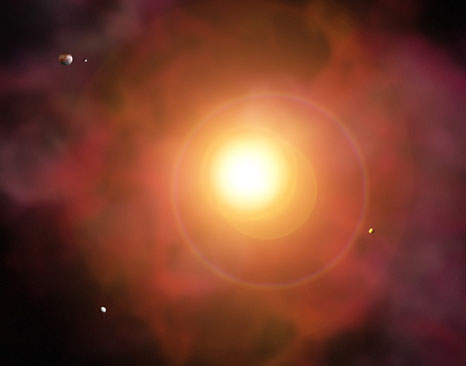Note: This is post #15 in our series on Tafseer of Juz ‘Amma.

Allah begins Surah Aadiyaat by saying:
وَالْعَادِيَاتِ ضَبْحًا
فَالْمُورِيَاتِ قَدْحًا
فَالْمُغِيرَاتِ صُبْحًا
فَأَثَرْنَ بِهِ نَقْعًا
فَوَسَطْنَ بِهِ جَمْعًا
Translation: By the ‘aadiyaat, when they pant, and the muwriyraat striking (when their hoves strike the ground and make sparks), and the mughiyraat, at dawn (when they raid), stirring up thereby [clouds of] dust, arriving thereby in the center collectively, …
This is a qasam (oath), a big oath that spans five ayaat. I’m going to dive into word-for-word translation, because no translation can do justice (without paragraphs of brackets).
‘Aadiyaat (عَادِيَات) are horses (plural: sound feminine plural, in fact). Not those horses you see Canadian Mounties riding; but real, true, WAR horses. If you’ve ever seen war-horses (send us a picture!), they have a special, particular intensity to them.
Dabhaa (ضَبْحًا) means to pant. Pant meaning, if you’ve ever run in a 100-meter race, or tried to run until you’re tired, and you start breathing heavily through your mouth–that’s panting. Why are the ‘aadiyaat panting? Because they are charging into battle.
You’ll see lots of war concepts here. The Arabs at the time of the Prophet (salallahu alayhi wa sallam) knew these things very, very well; and when Allah testifies, these things he testifies by–nobody would deny them.
Muwriyaat (مُورِيَات) are also war-horses–the ones that strike. Strike meaning, when they run, their hooves strike up sparks on the ground. I definitely don’t encourage watching movies, so if you’ve ever read seerah stories, or perhaps Lord of the Rings, or similar books, you might find these kinds of concepts in their battles.
Mughiyraat (مُغِيرَات) are the raiding horses. In the time of the Prophet, they would have raids; you would see a whole army of horses and riders sweeping into a city, and they’d kill everybody and destroy it. Mughiyraat are those raiding horses that they rode.







